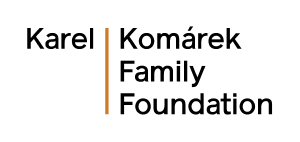Semyon Bychkov
Internationally recognized for an approach to music making that combines innate musicality with the rigors of Russian music pedagogy, Semyon Bychkov began his tenure as Chief Conductor and Music Director of the Czech Philharmonic at the start of the 2018-19 season.
Following early concerts with the Czech Philharmonic in 2013 that sparked their relationship, Mr. Bychkov initiated The Tchaikovsky Project, an intensive exploration of the venerated composer’s seminal works through a series of concerts, residencies, and recordings for Decca Classics. The Tchaikovsky Project culminates in 2019 with residencies in Paris and Vienna, and a box-set of Tchaikovsky’s complete symphonic repertory. In addition to a nine-city tour of the US, Mr. Bychkov inaugurates his tenure with the orchestra with concerts in London, Bruges, six cities in Germany, and a residency at Vienna's Musikverein.
Mr. Bychkov conducts the major orchestras and at the major opera houses in the US and Europe. In addition to his title with the Czech Philharmonic, he holds the Günter Wand Conducting Chair with the BBC Symphony Orchestra, with which he appears annually at the BBC Proms, and the honorary Klemperer Chair of Conducting at the Royal Academy of Music. He was named "Conductor of the Year" at the 2015 International Opera Awards.
Spanning four centuries, his repertory is wide-ranging. The coming season brings two weeks of concerts with the New York Philharmonic, which includes the US premiere of Thomas Larcher’s Symphony No. 2, and the Cleveland Orchestra where he will conduct works of Detlev Glanert, Martinů, and Smetana. In Europe, his concerts include performances with the Leipzig Gewandhaus Orchestra, Munich and Berlin philharmonics, Accademia di Santa Cecilia, and the Royal Concertgebouw Orchestra.
Mr. Bychkov was born in Saint Petersburg, studied at the Leningrad Conservatory, and at age twenty, won the Rachmaninoff Conducting Competition. Denied the prize of conducting the Leningrad Philharmonic, he immigrated to the United States, where his first appointments as music director were with the Grand Rapids Symphony and the Buffalo Philharmonic. He went on to become music director of Orchestre de Paris, principal guest conductor of the Leningrad Philharmonic, and chief conductor of both the WDR Symphony Orchestra Cologne and the Dresden Semperoper. He made his San Francisco Symphony debut in 1989.


